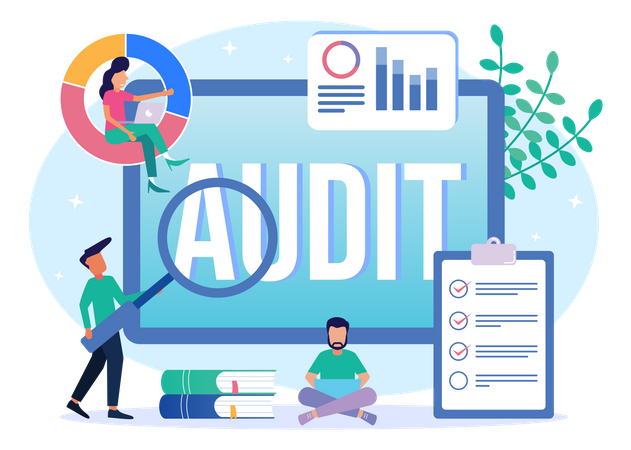RBI Compliance Audit

What is an RBI Compliance Audit?
An RBI Compliance Audit is a thorough examination of an organization’s financial systems, data management processes, and security protocols to ensure compliance with the regulatory standards set forth by the Reserve Bank of India. These audits are essential for non-banking financial companies, payment gateways, co-operative banks, and other financial entities that fall under RBI’s regulatory purview.
The audit covers various areas, including:
- Information security and cyber risk management
- Data privacy and protection standards
- Operational risk management
- Financial reporting and transaction monitoring
- Compliance with anti-money laundering (AML) and Know Your Customer (KYC) norms
- Technology infrastructure and resilience
Failure to comply with RBI regulations can result in severe penalties, including fines, reputational damage, and the potential loss of business licenses.
Why is RBI Compliance Important?
In the dynamic financial sector, RBI compliance is not only a legal obligation but also a critical factor in ensuring the trust of customers, investors, and stakeholders. RBI mandates stringent guidelines for security, risk management, and operational practices to safeguard financial institutions and the wider economic ecosystem.
- Mitigation of Financial Risks: Compliance audits help institutions identify vulnerabilities in their systems, reduce operational risks, and prevent financial fraud.
- Protection of Sensitive Data: Adhering to RBI’s security protocols ensures the safety of customer data, helping to build confidence and protect your institution from breaches.
- Regulatory Approval: Regular audits ensure that your institution maintains its operational license and avoids penalties or shutdowns due to non-compliance.
- Enhanced Reputation: Compliance enhances your institution’s reputation and trust among customers and investors, contributing to long-term success.

Why Choose INFOCUS IT for RBI Compliance Audits?
At INFOCUS IT, we bring years of experience in providing financial institutions with top-tier compliance auditing services. Here’s why our clients trust us:
- Experienced Auditors: Our team of certified auditors brings deep expertise in RBI regulations and financial auditing standards.
- Comprehensive Solutions: We offer end-to-end compliance solutions, from risk assessment to post-audit monitoring.
- Tailored Services: Every financial institution is unique, and we provide customized auditing solutions based on the specific needs of your organization.
- Ongoing Support: We believe in building long-term relationships with our clients, offering continuous support to ensure ongoing compliance.
- Proactive Risk Management: Our audits help mitigate risks before they become serious issues, protecting your business from potential penalties and reputational damage.
INFOCUS IT’s RBI Compliance Audit Process
We begin by conducting a gap analysis to identify any areas where your organization may not be compliant with RBI guidelines. This forms the basis of our audit, highlighting where improvements need to be made.
Our team conducts a detailed risk assessment of your systems and operations, identifying vulnerabilities and potential threats to your financial and operational security.
We review all necessary documentation, including financial reports, IT policies, data protection protocols, and operational procedures, to ensure they align with RBI regulations.
Based on our findings, we provide a detailed audit report that outlines areas of non-compliance, as well as actionable recommendations to rectify these issues.
Post-audit, we offer continuous monitoring services to ensure that your organization remains compliant with evolving RBI regulations.
Types of RBI Compliance Audits
- RBI Information Security Audit
- RBI Non-Banking Financial Company (NBFC) Audit
- RBI Account Aggregator Audit
- RBI Prepaid Payment Instruments (PPI) Audit
- RBI Payment and Settlement Systems Audit
- RBI P2P Lending Audit
- RBI Co-operative Bank IS Audit
- RBI Payment Aggregators & Gateway Audit
- RBI Data Localization Audit
Why is RBI Compliance Important?
- In the dynamic financial sector, RBI compliance is not only a legal obligation but also a critical factor in ensuring the trust of customers, investors, and stakeholders.
- RBI mandates stringent guidelines for security, risk management, and operational practices to safeguard financial institutions and the wider economic ecosystem.
- Mitigation of Financial Risks: Compliance audits help institutions identify vulnerabilities in their systems, reduce operational risks, and prevent financial fraud.
- Protection of Sensitive Data: Adhering to RBI’s security protocols ensures the safety of customer data, helping to build confidence and protect your institution from breaches.
- Regulatory Approval: Regular audits ensure that your institution maintains its operational license and avoids penalties or shutdowns due to non-compliance.
- Enhanced Reputation: Compliance enhances your institution’s reputation and trust among customers and investors, contributing to long-term success.

